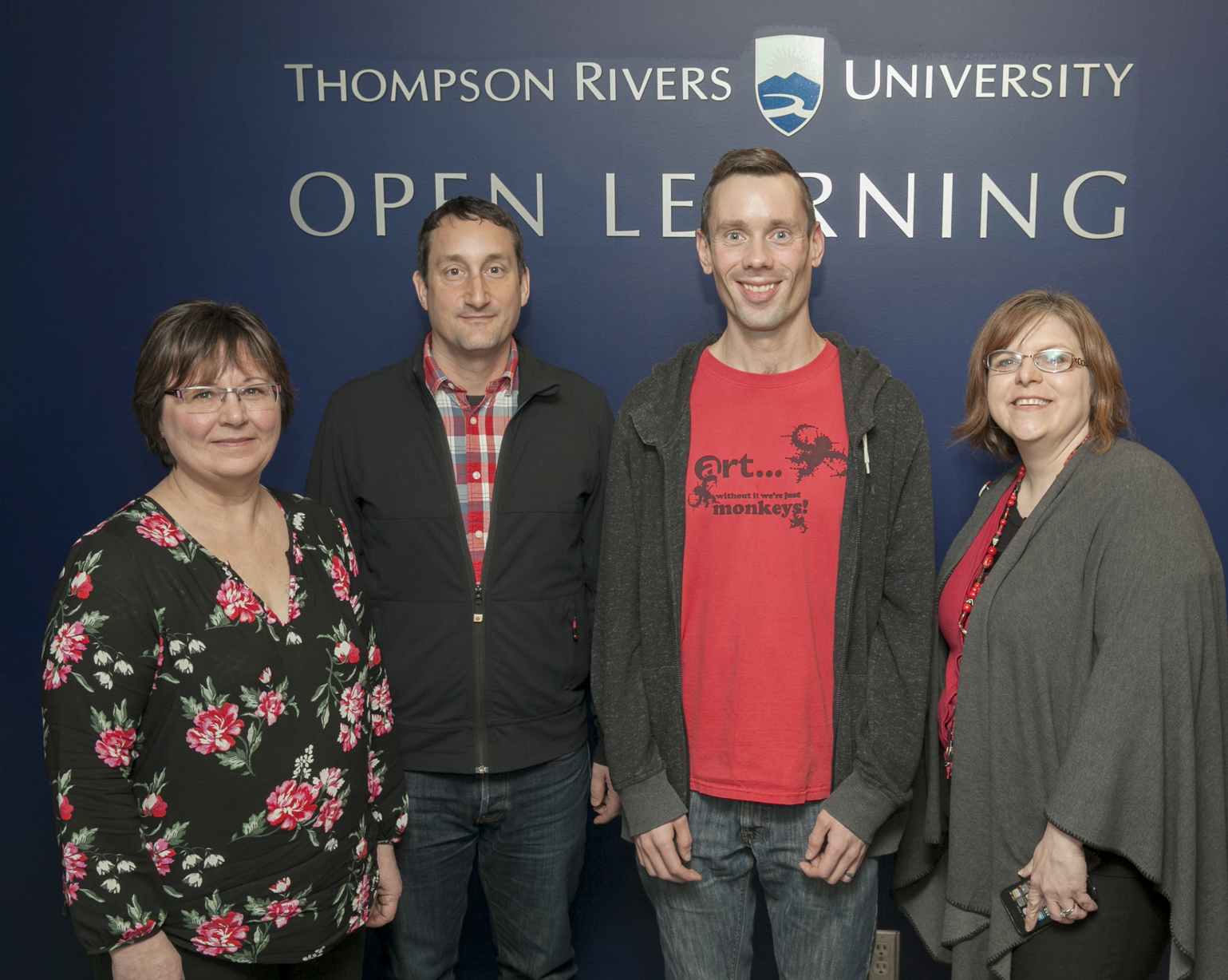Editing Team Photo


Welcome to co-creators Dani (darwinsfrog), Cory (corythestumpf), and Mona (mohall2015)! So, we moved back to this, our previous, wordpress site. We have ambitious plans to expand the site’s features in the future, but this will be the home of the OL Editors’ site for the next few weeks or months.
Required Hardware, Software, Computer Skills, and Other Resources • change to http://www.tru.ca/distance/services/student-orientation/technical-basics.html Technical Support change two URLs: • “…the correct hardware and software required for your course at http://www.tru.ca/distance/services/student-orientation/technical-basics.html.” • “… go to the IT Service Desk at http://www.tru.ca/distance/contact/helpdesk.html.” Student Café • Change to http://www.tru.ca/distance/services/student-orientation/online-discussions.html
Where possible, we try to include examples in our courses that reflect the diversity of Canadian society. Showing diversity in cultures, ethnicities, genders, ages, and abilities in both the visual representations we use and the instructional examples in courses, we engage with students, value their experience and community, and prepare students for life in a…
Open Learning’s editing team works in support of TRU’s intercultural and indigenization academic goals. (See, for example, http://www.tru.ca/about/academics/understanding.html.) This article that Gail shared on indigenization may be of interest in our work: Academica Group. (2016, September 19). How indigenization can support students while honouring reconciliation. Retrieved from http://forum.academica.ca/forum/how-indigenization-can-support-students-while-honouring-reconciliation.
TRUFA hosted a book launch for Whose Land Is It Anyway? A Manual for Decolonization on the Kamloops campus yesterday. If you missed it, like I did, the book is available online (epub, pdf): Whose Land Is It Anyway? A Manual for Decolonization (links to Federation of Post-Secondary Educators). Looks like a great book with writers…
We are changing our house style for the list of course developers on a copyright and credits page. Include the person’s terminal or highest credential only. Group the list by years of editions and revisions. Order the groups in reverse chronological order; i.e., most recent is at the top and earliest is at the bottom…